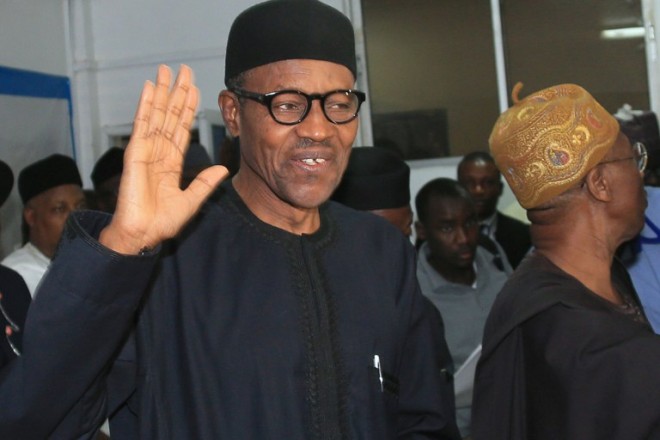Nigeria’s new president signals early move against Boko Haram
LAGOS, Nigeria—Nigeria’s new President Muhammadu Buhari has made an early pledge in the fight against Boko Haram, announcing a surprise restructuring in the command structure of the country’s counter-insurgency operations.
In his inaugural speech on Friday, the 72-year-old former military ruler said the counter-insurgency in the restive northeast would no longer be directed from the capital.
“Progress has been made in recent weeks by our security forces but victory cannot be achieved by basing the command and control center in Abuja,” he said after swearing the oath of office.
“The command center will be relocated to Maiduguri and remain until Boko Haram is completely subdued.”
Maiduguri, the capital of Borno state, is where the Islamist group was founded in 2002 and has been repeatedly targeted after the movement turned violent from 2009.
Article continues after this advertisementThe military on Saturday repelled a fresh attack on the city.
Article continues after this advertisementYan St-Pierre, head of the Modern Security Consulting Group, said Buhari’s relocation plan was “very sound,” allowing more streamlined communications between decision-makers, strategists and troops on the ground.
“In short, this denotes a more hands-on approach to the fight against Boko Haram,” the counter-terrorism consultant told AFP in an email exchange.
Oversight, coordination
Under former President Goodluck Jonathan Nigeria’s military was seen as largely ineffective against Boko Haram until a fightback began this year with neighbors Chad, Cameroon and Niger.
Despite massive annual defense spending, Nigerian troops claimed they lacked adequate weapons to take on the better-armed militants, as well as not having enough food or being paid on time.
Buhari, a former army general, has vowed to overhaul the military, stamping out corruption and reviving a reputation that was rubbished during Jonathan’s regime.
New weapons and hardware have been procured since late last year, and with the help of private security contractors, many of them from South Africa, the military has gained the upper hand.
Ryan Cummings, chief Africa analyst at the Red24 consultancy group, however, saw the switch from Abuja to Maiduguri as “more of a symbolic gesture.”
“I think Buhari is trying to debunk a common-held perception that Nigeria’s northeast is considered to be of little consequence to the Nigerian state and, as such, the security of the region is not a priority to an Abuja-hosted regime,” he said.
“Buhari may also be consciously addressing the root causes, and not only the symptoms of the insurgency, by extending governance to spaces where it has been limited and/or absent.”
Directing operations closer to the field could help improve coordination in the coalition, which although together on paper, has effectively operated independently, said St-Pierre.
“It also sends a very strong message to everyone involved. Buhari is taking the fight against BH very seriously and will take the necessary measures to ensure success.”
Buhari made no specific mention of Chad, Niger and Cameroon in his speech, other than to thank them “for committing their armed forces to fight Boko Haram in Nigeria.”
Whether he will continue the partnership is unclear, although N’Djamena recently extended its troops’ mandate to operate in the counter-insurgency.
The new head of state did not mention the African Union multi-national force or wider international initiatives taken in light of Boko Haram’s allegiance to the Islamic State group in Syria and Iraq.
Analysts see regional cooperation as key to defeating the militants, who have been pushed out from captured territory and towns and are thought to be taking refuge in border areas.
Human rights
Nigeria’s military has long been accused of excesses in its pursuit of Boko Haram, including arbitrary detention, torture and extra-judicial executions of civilians.
At least 15,000 people have been killed during the insurgency and more than 1.5 million made homeless, sparking what the Red Cross says is “one of the most serious humanitarian crises in Africa.”
Buhari pledged to “overhaul the rules of engagement to avoid human rights violations” during military operations and bring offenders to book.
“The promises of improving operational and legal mechanisms and taking disciplinary measures are all to be welcomed,” said Amnesty International’s Netsanet Belay.
“But the new government needs to go beyond this and ensure proper accountability for crimes committed in the context of the conflict.
“The new administration is indeed presented with a unique opportunity to break the cycle of impunity in Nigeria,” he added.
